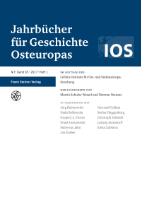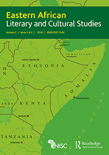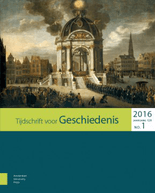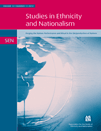
Slovo
metrics 2024
Fostering Scholarly Dialogue on Slavic Heritage
Introduction
Slovo, published by the University College London, School of Slavonic & East European Studies, is a vital scholarly journal dedicated to the exploration of Slavic languages and cultures, as well as the broader social sciences and humanities. Established with a commitment to advancing academic discourse, Slovo serves as a platform for researchers, professionals, and students interested in the dynamic intersections of literature, history, and cultural studies within Slavic and Eastern European contexts. Although it holds a Q4 ranking in both the Arts and Humanities and Social Sciences categories, the journal’s emphasis on fresh perspectives often invites innovative contributions that challenge conventional narratives. While lacking an Open Access option, Slovo remains integral for those seeking to navigate its multifaceted terrain, ensuring that emerging scholars and established academics alike can engage with rigorous research from 2012 to 2023 and beyond. With its headquarters in London, United Kingdom, this journal not only reflects the rich heritage of its academic lineage but also fosters a vibrant community committed to the exploration of Slavic and East European studies.
Metrics 2024
 0.11
0.11 0.20
0.20 0.20
0.20 4
4Metrics History
Rank 2024
Scopus
JCI (Web Of Science)
Quartile History
Similar Journals

JAHRBUCHER FUR GESCHICHTE OSTEUROPAS
Delving into the Intricacies of Eastern European HeritageJAHRBUCHER FUR GESCHICHTE OSTEUROPAS, published by FRANZ STEINER VERLAG GMBH, is a prominent academic journal dedicated to the exploration of Eastern European history. With its inception dating back to 1978, this journal has consistently provided a platform for scholarly discourse, contributing significantly to the understanding of the region's complex historical narratives. While the journal is not open access, it holds a solid reputation within the academic community, positioned in the Q4 quartile in history as per the 2023 category rankings, and stands at Rank #1636 within the Scopus Arts and Humanities History ranking. The convergence of its publication years throughout the decades emphasizes a long-standing commitment to historical research, thereby making it an essential resource for researchers, professionals, and students interested in Eastern European studies. Explore the intricate dynamics of historical events and cultural developments that shape Eastern Europe through this invaluable periodical.

Acta Baltico-Slavica
Connecting Scholars Across Baltic and Slavic DisciplinesActa Baltico-Slavica, an esteemed academic journal published by the Polish Academy of Sciences, Institute of Slavic Studies, serves as a vital platform for the exploration of Slavic cultures, languages, and historical narratives. Since its transition to Open Access in 2014, the journal has fostered inclusivity and accessibility, allowing researchers, professionals, and students to engage with cutting-edge scholarship in the fields of History, Linguistics and Language, and Literature and Literary Theory. With a commendable impact as indicated by its category quartile rankings (Q2 in History and Literature, Q3 in Linguistics), and Scopus rankings reflecting its significance within the academic community, Acta Baltico-Slavica not only contributes to the rich tapestry of scholarship surrounding the Baltic and Slavic regions but also encourages interdisciplinary dialogue. The journal’s commitment to advancing knowledge across its fields of study makes it a prominent destination for scholarly discourse and research inquiry.

Eastern African Literary and Cultural Studies
Fostering Innovative Research on Eastern African Cultural LandscapesWelcome to the Eastern African Literary and Cultural Studies, a prestigious journal dedicated to exploring the dynamic intersection of literature and cultural studies within Eastern Africa. Published by Routledge Journals, Taylor & Francis Ltd, this journal serves as a vital platform for scholars and practitioners to engage with innovative research that enriches the understanding of the region's unique cultural narratives and literary traditions. With an established impact factor reflecting its growing influence—ranking in the top quartile in both Cultural Studies and Literature and Literary Theory—this journal is instrumental for those seeking to contribute new insights in these fields. The journal is indexed within the Scopus database, showcasing its credibility and reach, and ranks favorably among its peers in terms of dissemination and citation. Researchers, educators, and students alike will find valuable resources and thought-provoking articles from 2019 to 2024 that address critical issues in Eastern African contexts. Immerse yourself in the vibrant discourse that shapes our understanding of literature and culture in this important region.

TIJDSCHRIFT VOOR GESCHIEDENIS
Connecting Scholars Through TimeTIJDSCHRIFT VOOR GESCHIEDENIS is a prestigious academic journal published by WOLTERS-NOORDHOFF B V, dedicated to the field of history. With its ISSN 0040-7518 and an established reputation in the Netherlands, this journal serves as a vital platform for researchers, professionals, and students to disseminate and engage with significant historical scholarship. The journal's impactful contributions have earned it a commendable Q2 category ranking in the history field for 2023, placing it in the top tier of history journals according to Scopus. Although not open access, TIJDSCHRIFT VOOR GESCHIEDENIS offers invaluable insights into various historical topics spanning from its converged years starting in 1983 through to 2024. This enduring commitment to scholarly excellence fosters robust academic discourse and acts as an essential resource for those engaged in historical studies.

Vestnik Sankt-Peterburgskogo Universiteta-Istoriya
Connecting Scholars: A Hub for Historical AnalysisVestnik Sankt-Peterburgskogo Universiteta-Istoriya is a distinguished academic journal published by the St Petersburg University Press, specializing in the field of History. As an influential platform since its inception in 2017, the journal has rapidly gained recognition, achieving a commendable Q2 ranking in History for 2023 and ranking #631 out of 1760 in Scopus's category of Arts and Humanities. With an emphasis on fostering scholarly discourse and disseminating high-quality research, it presents a curated selection of original research articles, critical reviews, and historical analyses, appealing to historians, researchers, and students alike. Operating from Russia, Vestnik Sankt-Peterburgskogo Universiteta-Istoriya serves not only as an incubator for innovative ideas but also as a bridge for international collaboration in the historiographical community. Although it currently does not offer open access, the journal's commitment to academic rigor and relevance ensures its continued impact in the field, with converged years extending to 2024, providing a rich archive for future scholars to engage with.

Metacritic Journal for Comparative Studies and Theory
Championing Interdisciplinary Research for a Global Audience.Metacritic Journal for Comparative Studies and Theory is a premier scholarly publication focusing on interdisciplinary research within the fields of Arts and Humanities, as well as Social Sciences. Published by UNIV BABES-BOLYAI, FAC LETTERS, PHANTASMA CTR IMAGINATION STUDIES, this Open Access journal has made significant strides since its inception in 2015, providing a platform for innovative comparative studies that inspire critical discourse. With an impressive Q2 ranking in both Arts and Humanities and Social Sciences, the journal showcases high-quality research that engages contemporary issues and theoretical frameworks. Its Scopus rankings further highlight its impact, with a noteworthy position in the 78th percentile for Arts and Humanities and 40th percentile for Social Sciences. As an accessible resource for researchers, professionals, and students, the journal encourages contributions that navigate complex themes of interpretation and imagination that resonate within and beyond Romanian scholarship. Discover the latest insights and foster collaborations in a dynamic academic landscape.

MESTER
Exploring the Nexus of Language, Culture, and TheoryMESTER is a distinguished academic journal published by the UCLA College of Humanities, known for its commitment to advancing research in the fields of Cultural Studies, Linguistics and Language, and Literature and Literary Theory. With an ISSN of 0160-2764, this journal serves as a vital platform for scholars and professionals to disseminate innovative research and critical perspectives from diverse theoretical frameworks and cultural contexts. Although currently operating without an Open Access model, MESTER continues to uphold a rigorous peer-review process, ensuring that published articles maintain high academic standards. Recognized for its selective focus, MESTER holds a Q4 categorization in Cultural Studies and Linguistics, and Q3 in Literature and Literary Theory, situating it as a relevant, if emerging, voice within these disciplines. Housed within the significant repository of knowledge at UCLA, the journal beckons researchers, students, and practitioners to engage with its contributions to the humanities and build upon its foundations in cultural discourse.

Trabajos y comunicaciones
Advancing Scholarship, Bridging Disciplines.Trabajos y comunicaciones, published by UNIV NAC LA PLATA, FAC HUMANIDADES & CIENCIAS EDUC, is a distinguished open-access journal that has been a vital contribution to the fields of humanities and educational sciences since 2013. This journal facilitates the dissemination of scholarly research and insights that address contemporary issues and advancements within these disciplines. With an ISSN of 0325-173X and an E-ISSN of 2346-8971, it provides an accessible platform for researchers, professionals, and students alike, fostering academic dialogue and collaboration. Although the precise HIndex and Scopus rankings are not listed, the journal is committed to maintaining high standards of academic rigor and relevance. Located in the vibrant cultural context of La Plata, Argentina, Trabajos y comunicaciones serves as an essential resource for those seeking to enrich their understanding of humanistic and educational inquiries.

Studies in Ethnicity and Nationalism
Exploring the Dynamics of Identity and BelongingStudies in Ethnicity and Nationalism, published by WILEY, is a prestigious academic journal that serves as a vital forum for the exploration and dialogue surrounding issues of ethnicity, nationalism, and identity in today’s globalized society. With an ISSN of 1473-8481 and E-ISSN 1754-9469, this journal not only addresses theoretical frameworks but also provides empirical research essential for understanding complex social dynamics. Holding a commendable Q3 ranking in the fields of Sociology and Political Science, and positioned at the 57th percentile among its peers, it boasts a significant impact on contemporary scholarly discourse since its inception in 2001. Although it does not currently offer an Open Access option, it remains dedicated to publishing high-quality, peer-reviewed research that contributes to policy-making, academic scholarship, and the broader public understanding of ethnicity and nationalism. Researchers, professionals, and students can benefit immensely from the insights provided in this journal, making it an essential resource for those engaged in the social sciences.

Studies in Eastern European Cinema
Advancing Scholarship in Eastern European CinemaStudies in Eastern European Cinema is a distinguished journal dedicated to exploring the rich and diverse landscape of cinematic art in Eastern Europe. Published by Routledge Journals, Taylor & Francis Ltd, this journal has carved a unique niche since its inception in 2010, providing insightful analysis and fostering dialogue among scholars, professionals, and students in the fields of Communication and Visual Arts and Performing Arts. With a current impact factor reflected in its respective quartile rankings, which position it in Q4 in Communication and Q2 in Visual Arts and Performing Arts, the journal serves as an essential platform for research and discourse on the cinematic contributions of Eastern Europe. Featuring contributions that analyze historical contexts, artistic trends, and cultural implications, it aims to broaden the understanding of Eastern European cinema's role within the global film landscape. While it offers a traditional subscription model, its ongoing commitment from 2010 to 2024 ensures it remains at the forefront of academic inquiries, appealing to a growing audience dedicated to the appreciation and scholarship of Eastern European cinematic arts.